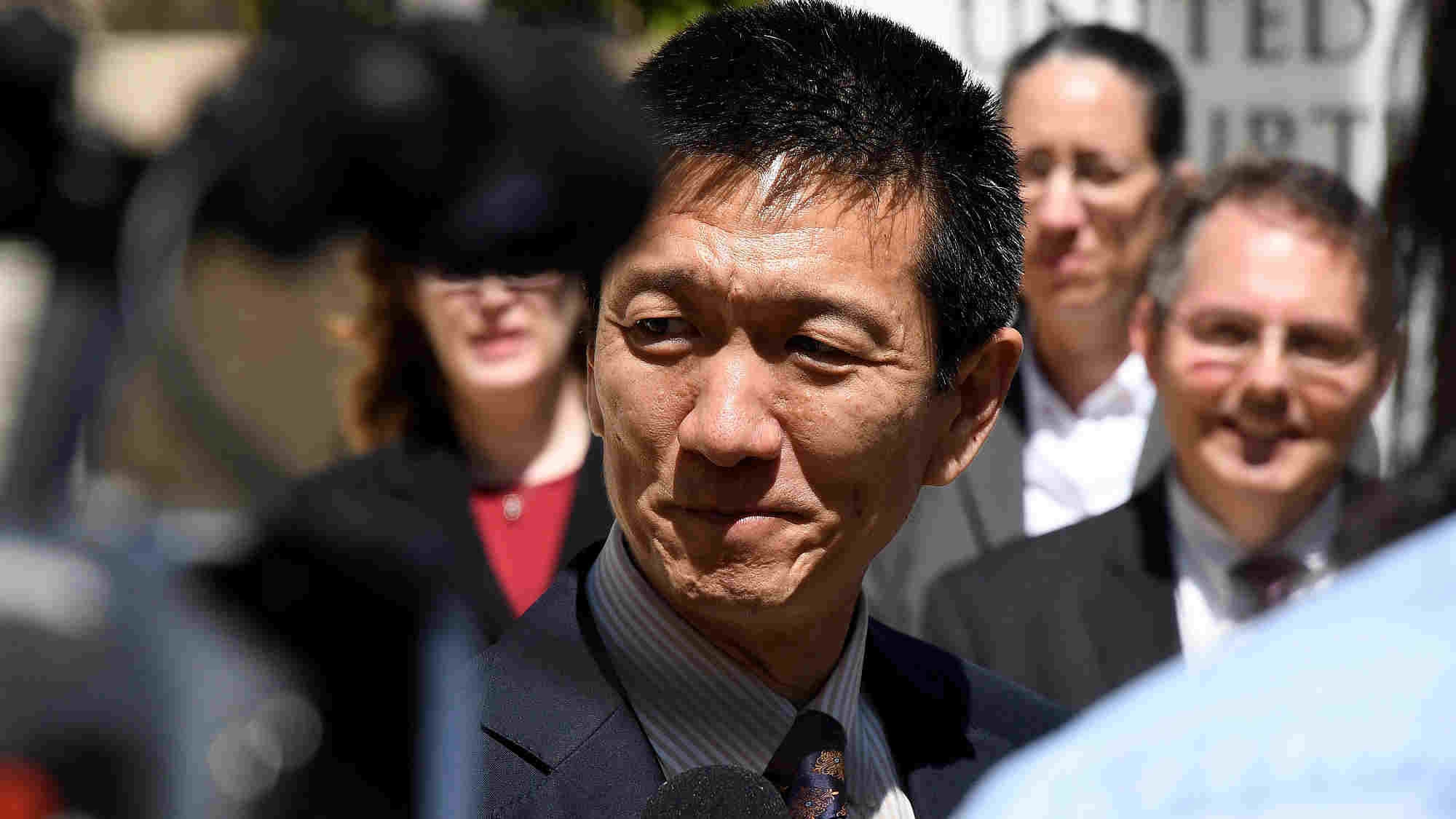US President Donald Trump's travel ban on citizens of six Muslim-majority nations faces its next challenge at a US appeals court next month.
Sixteen Democratic state attorneys general and the District of Columbia on Thursday filed a "friend of the court" brief backing Hawaii in its bid to block the March 6 executive order, which two federal judges put on hold before it could be implemented. Hawaii and other states argue the ban violates the US Constitution because it discriminates against Muslims.
Trump's original ban, which the president said was needed for national security to head off attacks by Islamist militants, applied to seven Muslim-majority nations and indefinitely banned the entry of all refugees from Syria. It was revised and narrowed after a flurry of legal challenges.

Hawaii Attorney General Douglas Chin talks to the media at the US District Court Ninth Circuit in Honolulu, Hawaii, March 29, 2017. /VCG Photo
Trump's January order was hastily implemented just days after his inauguration, leading to chaos and protests at airports and more than two dozen lawsuits. A federal judge in Seattle halted the order and the 9th circuit upheld that ruling.
The White House re-crafted the order to exclude legal permanent residents and removed Iraq from the list of targeted countries. Iran, Libya, Somalia, Sudan, Syria and Yemen are still included in the new order. The new ban also dropped language giving preference to refugees who are part of a persecuted religious minority in their country of citizenship.
The changes were meant to chip away at the plaintiffs' "standing" to sue, which requires that anyone bringing a lawsuit show they have been directly harmed by the action they are contesting.
But as soon as the second order was signed, states and civil rights groups went back to court, saying that it was still discriminatory.

Protestors place photographs of refugees in rafts in front of the Trump Building on Wall Street during a protest against the travel ban and refugee policies, March 28, 2017 in New York City. /VCG Photo
Federal district judges in Maryland and Hawaii put the second order on hold before it could take effect on March 16.
Most of the focus is now on the Hawaii case, which is being heard by the Ninth Circuit on May 15. The judge in Hawaii blocked the two central sections of the ban, on travel and refugees, while the Maryland judge halted the travel portion.
The Fourth Circuit appeals court in Virginia is slated to hear arguments in the Maryland case on May 8.
More than 160 Silicon Valley companies including Facebook, Twitter and Google, filed a brief in the US District Court of Appeals for the Fourth Circuit that argues the new order would severely harm US businesses, their employees, and the entire country.
This is the latest step Silicon Valley leaders have taken to combat the president's proposed immigration policies. Tech companies have been fighting Trump's immigration policies since January, when the president issued an initial version of his travel ban.
Silicon Valley is also railing against new restrictions on the H-1B visa program, which allows highly skilled tech professionals from other countries to work in the US. Trump signed an executive order on Tuesday that will revamp how those visas are awarded, and the White House says it will look closely at companies that employ foreign workers.
(Source: Agencies)
Related stories:









